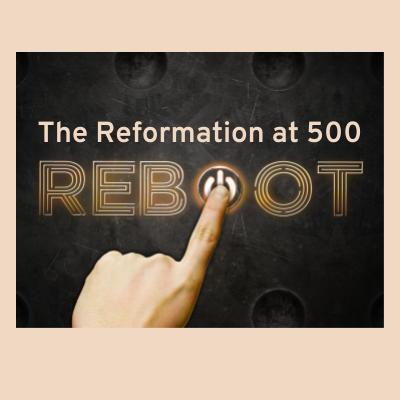SERMON SUMMARY
As soon as I saw Justin Long’s “Get a Mac” ad, I immediately ditched my PC and bought a refurbished Macbook. I thought I had it made—until this pretty little spinning wheel thing kept popping up and I’d have to restart my computer. It got worse, and so I took it into the Mac store. My small fix wasn’t doing the trick; they ended up totally wiping it and reinstalling the operating system. The whole system had to be rebooted. This is where Christians in the 15th and 16th centuries found themselves. The church didn’t just need a small tweak here or there, they needed sweeping reforms. The Roman Catholic Church was at the height of its’ influence. Entire governments were under the thumb of the Pope and other church officials. Any whisper of dissent was quickly stamped out with excommunication or worse. At that time you would have been hard-pressed to find similarities between the grassroots movement of Christianity depicted in the New Testament and the vast, powerful empire of the Catholic church and its theological errors.
Priests postured themselves as the educated sources of truth, teaching, and even forgiveness from sin. They abused their responsibility to clearly communicate God’s truth to His people. They saw the opportunity to consolidate their power and make some money and they exploited it. The Catholic Church sold “indulgences” (essentially a “get out of jail free” card for your sins). They even sold to prayers for the dead and assurances of salvation. Christianity was in desperate need of a reboot.
The first major step the widespread distribution of the Greek New Testament so that access to God’s Word was significantly increased. Access to God’s Word loosened the iron grip of the clergy. At the same time, a German monk named Martin Luther was wrestling with how he could ever be accepted by a perfect, righteous God. While studying the book of Romans, he came to a life-changing realization: through grace and sheer mercy, God justifies us through faith. As Luther put it: “You Lord Jesus are my righteousness, but I am your sin. You have taken upon yourself what is mine and have given to me what is yours.”
There had been reformers who spoke out against the practice of selling indulgences and other ethical problems within the church, but Luther was the first to go straight to the source of the problem: their incorrect doctrine of salvation. On October 31, 1517, Luther could remain quiet no longer: he nailed his list 95 “theses” (plural of “thesis”. A “thesis” is a point of debate; Luther had 95 of them!) to the church door. Many of Luther’s criticisms centered around the selling of indulgences and on the incredible power and authority wielded by the Pope and other clergy. In this statement, he declares that the authority of the Pope is not equal to the authority of God. Only the cross pays for sin.
Luther was called to a series of debates and councils in order to answer for what he had written. Instead of backing down or recanting, he became even more eloquent about the true nature of salvation. After being repeatedly bullied, threatened, and ordered to recant, Luther concluded with these eloquent words:
“Unless I am convicted by Scripture and plain reason—I do not accept the authority of popes and councils for they have contradicted each other—my conscience is captive to the Word of God. I cannot and I will not recant anything, for to go against conscience is neither right nor safe. Here I stand, I cannot do otherwise. God help me. Amen.”
Out of Luther’s words began the Protestant Reformation. Today access to the Scriptures and to God’s salvation has been made available to each of us. The church has come a long way—and is much closer to what God intended it to be than it was 500 years ago.
The Reformation wasn’t a one time event. It was sparked by a hammer, nail and 95 Theses in the hands of Martin Luther, but the church continues to reform itself even today. Over the next few weeks we’ll explore each of the five key concepts of the Reformation, the five “solas” (Latin for “alone”): “Scripture Alone”, “Christ Alone”, “Grace Alone”, “Faith Alone”, and “For God’s Glory Alone”. Don’t miss a week!
APPLICATION / CHALLENGE
- Do you need a spiritual reboot? If you are stuck, don’t keep “waiting for the wheel to stop spinning”— talk to one of your pastors, to your Community Group leader, or write to TCC Counseling.
- Make sure to catch the rest of this series. Join us for a healthy reboot of our foundational beliefs.
- If you would like to know God personally, contact us here. Scroll down to the Ministry Information Request section and mark the first or second checkbox. We look forward to helping!
TAKE ONE STEP
Each week, identify and write down one, concrete step of obedience, small or large but doable, that you will put into practice this week. (James 1:22: “But prove yourselves doers of the word, and not merely hearers who delude themselves.”)


